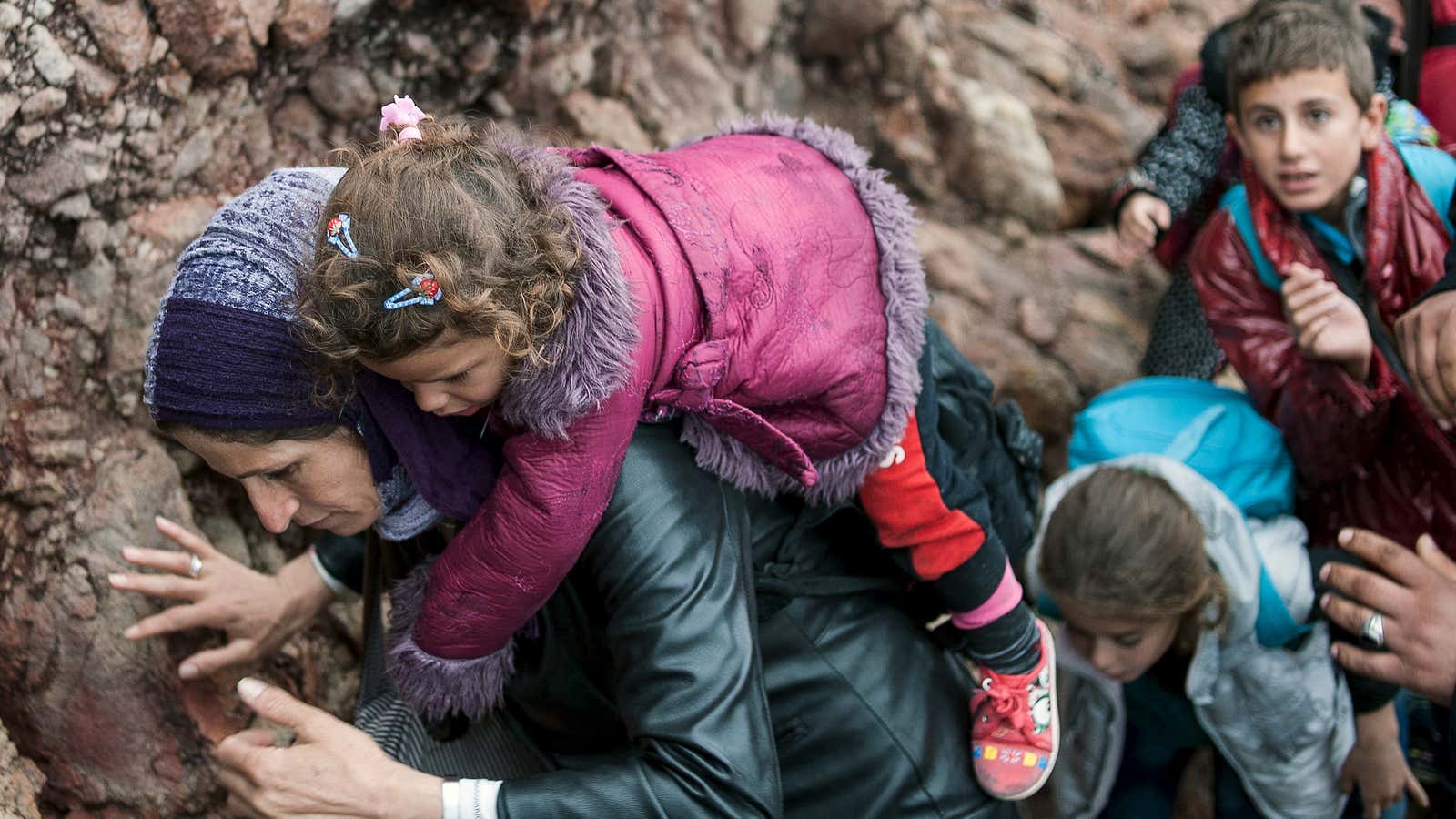If fleeing war-torn countries, making hazardous journeys, and dealing with the arduous immigration process weren’t harrowing enough, researchers have now discovered that refugees face an added burden: an increased risk of developing schizophrenia.
Researchers, led by Anna-Clara Hollander, from Sweden’s Karolinska Institute, studied 1.3 million people living in Sweden and found that refugees were three times more likely to experience schizophrenia and other psychoses than native-born Swedes, and two-thirds more likely than non-refugee migrants who came from the same region.
The study, published in BMJ on March 15, did not look at the most recent refugees, but tracked more than a million people born from 1984 onwards, from their 14th birthday (or date of arrival in Sweden, if later), until the end of 2011. Some 3,704 of the group developed psychotic disorders.
Co-senior author James Kirkbride, psychiatry research fellow at University College London, tells Quartz that the study fits with previous work showing a link between trauma and psychosis. However, he notes, the data does not show why being a refugee might lead to schizophrenia. It’s possible that refugees’ experience in their home countries, the migration process itself, and experiences of isolation and discrimination post-arrival could all be associated with increased risks.
But while further research is needed to establish the details, Kirkbride says that not acknowledging the mental health risks faced by refugees means refusing to treat the burden “in an appropriate manner.”
Though schizophrenia is highly hereditable, Kirkbride says it’s unlikely that genetic predispositions alone—namely, that Swedish people may be genetically less predisposed to schizophrenia—could be the sole explanation. Previous studies have made direct comparisons with immigrants and those who stayed in their home country, and found that those who emigrate have higher risks of schizophrenia. Kirkbride’s study expands on this established research and suggests that the risk is higher still for refugees.
And in general, Kirkbride says that both environment and genetics have a role in developing psychosis.
“Environmental factors have to come into play. There has to be something other than an underlying genetic risk that triggers that psychotic experience,” he says.
But Amir Sariaslan, psychiatry researcher at Oxford University, who was not connected to the study, warns that though the refugee study does shows a link between being a refugee and schizophrenia, there’s no evidence about what could cause this risk.
Becoming a refugee or immigrant is likely associated with a myriad of other factors, he tells Quartz.
“The factors that distinguish why you end up in these different social groups could also explain psychosis and they haven’t really done anything to account for this. You can’t randomize people to become immigrants or refugees or native Swedes,” he adds.
Sariaslan points out that around 70 to 80% of variation in schizophrenia can be attributed to genetic factors, and that it’s important to take into account genetic influences while examining environmental factors. This is not clear-cut, as genetic factors can contribute to seeming environmental factors, such as where people choose to live or their test scores.
And finally, though the study’s model shows an average higher risk of schizophrenia, this doesn’t mean that there’s a specific increased risk for anyone as individuals. The research is of little use to a clinician trying to establish one person’s psychotic risks.
But for the millions of refugees worldwide, these caveats are likely little comfort. The precise causes are undetermined, but the study shows refugees have a increased risk of schizophrenia on top of all their other burdens.
